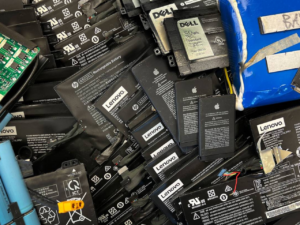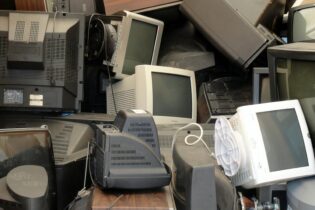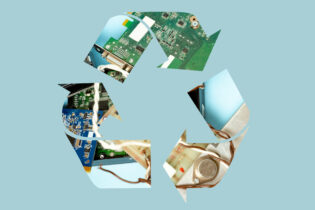As more individuals are choosing to live and work off the grid to avoid the inconvenience of loadshedding, there is increased demand for lithium-ion (LIB) batteries that power solar panel systems. Improper disposal of these batteries has serious adverse implications for the environment, so it is important to dispose of them responsibly.
Lithium, sometimes referred to as ‘white petroleum’ is a key component in energy storage. From their initial discovery in the 1970s through the awarding of the Nobel Prize in 2019, the use of LIBs has increased exponentially. In fact, in recent years the demand has skyrocketed. “The South African market is relatively new in the consumption of LIB batteries, particularly those used for solar panels,” says John Hunt, Managing Director at Mpact Recycling. “As their life cycles comes to an end, it is imperative that consumers are informed about how to dispose of them correctly.” The improper disposal of LIB batteries is detrimental to South Africa’s delicate ecosystems and water sources, endangering both wildlife and human health. Proper disposal methods, such as safe battery collection programmes, established collection points and partnerships with local communities are essential to mitigating this risk. It is important to follow instructions from the manufacturer regarding packaging, some may provide instructions on securing the battery safely for transportation to avoid illegal dumping. Simple steps like identifying the battery type and its manufacturer can lead you to recycling programmes that the manufacture might have in place. Consumers must also consider the safe transportation of these batteries so as to avoid the risk of them breaking open, as they can leak dangerous materials that can cause harm.“Consumers should not dispose of their batteries as part of household waste or in their recycling bins, as there is a chance that they could catch fire during transportation, at recycling centres or landfill sites,” explains Hunt.“We recommend that they take them to specialised hazardous waste recycling collection points or contact service providers such as Circular Energy that offer safe e-waste collection. “As stewards of the environment, we need to drive responsible consumption and promote healthy recycling practices not only for lithium batteries but all waste that could potentially end up in landfills.” “We need to work together with suppliers of alternative solutions using LIBs to implement sustainable waste management practices,” he concludes. We need to drive education and awareness to encourage individuals to take an active role in protecting our environment for future generations.”







